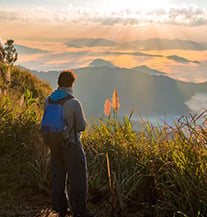Sign in
Contact
-
MenuBack
-
Our Sports
-
-
-
-
Hiking equipment
- Headlamp
- Hiking accessories
- Hiking compass
- Hiking poles
- Pole accessories
- Sunglasses
- Trekking binoculars
-
Hiking equipment
-
-
Hiking bag
- Baby carrier accessories
- Baby carrier bag
- Children's backpacks
- Hiking backpack
- Isothermal bag
- Rain cover
- Waterproof bags
-
Hiking bag
-
-
-
-
Hiking shoes
- Flip-flops
- Hiking boots
- Hiking sandals
- Hiking shoe accessories
- Insoles for hiking boots
- Low hiking shoes
-
Hiking shoes
-
-
Hiking shoe accessories
- Cleaning products
- Laces
- Waterproofing
-
Hiking shoe accessories
-
-
-
- Hiking clothes
-
- Hiking caps
- Hiking hats
- Hiking socks
- Men's hiking jackets
- Men's hiking pants
- Men's hiking T-shirts
- Men's Softshell Jacket
- Women's hiking jackets
- Women's hiking pants
- Women's hiking T-shirts
- Women's Softshell Jacket
-
- Men's hiking shorts
- Women's hiking shorts
-
-
-
-
-
-
Mountaineering equipment
- Ice screws
- Mountaineering accessories
- Mountaineering backpack
- Mountaineering crampons
- Mountaineering harness
- Mountaineering ice axe
- Mountaineering rope
-
Mountaineering equipment
-
-
-
-
Mountaineering shoes
- Approach Shoes
- Mountain boots
- Mountaineering boots
-
Mountaineering shoes
-
-
-
- Mountaineering Clothing
-
- Climbing gloves
- Men's fleeces
- Men's ski pants
- Men's Softshell Jacket
- Women's fleeces
- Women's ski pants
- Women's Softshell Jacket
-
- Men's mountaineering jacket
- Women's mountaineering jacket
-
-
-
-
-
-
Climbing belay
- Climbing anchors
- Climbing belay goggles
- Climbing carabiner
- Climbing pulleys
- Climbing quickdraws
- Climbing ropes
- Climbing straps
- Climbing wedges
- Rope bags
-
Climbing belay
-
-
-
-
Climbing shoes
- Lace-up climbing slipper
- Velcro climbing shoes
-
Climbing shoes
-
-
Climbing equipment
- Climbing accessories
- Climbing backpack
- Climbing bivouac
- Climbing harness
- Climbing helmets
- Crash Pad
- Magnesia bag
- Magnesia for climbing
-
Climbing equipment
-
-
-
- Climbing clothes
-
- Climbing gloves
- Men's climbing pants
- Men's climbing T-shirts
- Men's Softshell Jacket
- Women's climbing pants
- Women's climbing T-shirts
- Women's Softshell Jacket
-
- Men's climbing shorts
- Women's climbing shorts
-
-
-
-
-
-
Tents
- 1-person tent
- 2-person tent
- 3-person tent
- Family Tent Camping
- Floor mats
- Mosquito net
- Shipping tent
- Trekking tent
- Ultra-light tent
-
Tents
-
-
-
-
Camping equipment
- Camping accessories
- Camping chairs
- Camping lamp
- Camping table
- Camping towels
- Solar shower
-
Camping equipment
-
-
Survival accessories
- Compass
- First aid kit
- Survival blankets
- Survival kit
- Water purifier
-
Survival accessories
-
-
-
-
Camping kitchen
- Camping cooler
- Camping dishes
- Camping stove
- Cutlery
- Gas cartridges
- Gourds
- Kettle
- Nutrition
- Popote camping
- Stove accessories
-
Camping kitchen
-
-
-
-
Camping bedding
- Camping hammock
- Camping mattresses
- Camping pillows
- Camping sheets
- Compression bag
- Sleeping bag
-
Camping bedding
-
-
-
-
-
-
Survival gear
- Bushcraft tools
- Machetes
- Solar chargers
- Survival knives
-
Survival gear
-
-
-
-
Survival accessories
- Compass
- First aid kit
- Survival blankets
- Survival kit
- Water purifier
-
Survival accessories
-
-
-
- Nutrition
-
-
-
-
-
-
Trail equipment
- Hydration accessories
- Hydration vest
- Hygiene
- Pharmacy
- Soft Flask
- Trail bag
- Trail belts
- Trail headlamp
- Trail stick
- Water Pouch
-
Trail equipment
-
-
-
- Trail shoe
-
- Sandal recovery
- Shoe sole
- Trail crampons
- Trail shoes
-
-
-
- Trail clothing
-
- Men's tank tops
- Men's trail jackets
- Men's trail shorts
- Men's trail T-shirts
- Men's trail tights
- Men's windproof jackets
- Trail caps
- Trail socks
- Women's shorts
- Women's tank tops
- Women's trail jackets
- Women's trail T-shirts
- Women's trail tights
- Women's windproof jackets
-
-
-
-
-
-
Running gear
- Energy drinks
- Energy supply
- Nordic walking poles
- Running hydration vest
-
Running gear
-
-
-
-
Running shoe
- Running shoes
- Sandal recovery
- Shoe sole
-
Running shoe
-
-
-
- Running clothes
-
- Women's technical bra
- Running socks
- Men's tank tops
- Trail caps
- Men's trail jackets
- Women's trail jackets
- Men's trail shorts
- Men's trail T-shirts
- Women's trail T-shirts
- Men's windproof jackets
- Women's windproof jackets
- Women's shorts
-
-
-
-
-
-
Road bike equipment
- Bike Bag
- Bike goggles
- Bike helmet
- Bike shin guards
- Bike sleeve
-
Road bike equipment
-
-
Road bike accessories
- Baby seat carrier
- Bicycle bag
- Bike rack
- Bike tools
- Bike trailer
- Cans
-
Road bike accessories
-
-
-
-
Bicycle shoes
- Boa cycling shoe
- Classic cycling shoe
- On shoes
-
Bicycle shoes
-
-
-
- Bike clothing
-
- Men's cycling shorts
- Women's cycling shorts
- Men's cycling jacket
- Women's cycling jacket
- Men's cycling shorts
- Women's cycling shorts
- Women's short-sleeve cycling jersey
- Men's short-sleeve cycling jersey
-
- Bike cap
- Bike gloves
- Bike socks
-
-
-
-
-
-
Mountain bike equipment
- ATV protection
- Mountain bike goggles
- Mountain bike helmet
- MTB Mask
-
Mountain bike equipment
-
-
-
-
MTB shoes
- Boa MTB shoe
- Classic MTB shoes
-
MTB shoes
-
- Bike rack
-
-
-
- Mountain bike clothing
-
- Bike cap
- Bike gloves
- Bike socks
- Men's cycling jacket
- Men's cycling shorts
- Men's cycling shorts
- Women's cycling jacket
- Women's cycling shorts
- Women's cycling shorts
-
- Women's long-sleeve cycling jersey
- Men's long-sleeve cycling jersey
-
-
-
-
-
-
-
Ski equipment
- Ski poles
- Ski boots
- Ski bindings
- Ski binding pack
- Downhill skiing
-
Ski equipment
-
-
Ski equipment
- Ski goggles
- Ski mask
- Ski helmet
- Ski helmet with visor
- Back protectors
- Wrist guards
- Ski backpack
- Other protections
-
Ski equipment
-
-
-
-
Avalanche safety equipment
- Airbag
- Airbag cartridges
- Avalanche probes
- Avalanche shovel
- DVA
- DVA overhaul
- DVA packs
- Inclinometers
- Safety accessories
-
Avalanche safety equipment
-
-
Ski accessories
- Mask shields
- Ski bags
- Ski boot bags
- Ski boot soles
- Ski equipment maintenance
-
Ski accessories
-
-
-
- Ski clothing
-
- Women's alpine ski pants
- Women's Alpine ski jackets
- Men's Alpine ski jackets
- Men's alpine ski pants
- Men's ski jacket
- Women's ski jacket
- Children's ski jacket
- Ski socks
- Children's ski suit
-
- Children's fleece
- Children's ski pants
- Heated ski gloves
- Men's fleeces
- Men's Softshell Jacket
- Mittens
- Ski cap
- Ski gloves
- Ski headband
- Under gloves
- Women's fleeces
- Women's Softshell Jacket
-
-
-
-
-
-
Ski touring equipment
- Ski touring
- Ski touring boots
- Ski touring knives
- Ski touring packs with bindings
- Ski touring packs with bindings and skins
- Ski touring packs with skins
- Ski touring poles
- Ski touring skins
- Touring ski bindings
-
Ski touring equipment
-
-
Telemark equipment
- Telemark binding
- Telemark Shoes
- Telemark skiing
-
Telemark equipment
-
-
-
Ski accessories
- Mask shields
- Ski bags
- Ski boot bags
- Ski boot soles
- Ski equipment maintenance
-
Ski accessories
-
-
-
-
Avalanche safety equipment
- Airbag
- Airbag cartridges
- Avalanche probes
- Avalanche shovel
- DVA
- DVA overhaul
- DVA packs
- Inclinometers
- Safety accessories
-
Avalanche safety equipment
-
-
Ski touring equipment
- Ski brakes
- Ski touring bag
- Ski touring goggles
- Ski touring helmet
- Ski touring mask
-
Ski touring equipment
-
-
-
- Cross-country ski clothing
-
- Men's lightweight down jacket
- Women's lightweight down jacket
- Men's ski touring jackets
- Men's ski touring pants
- Women's ski touring jackets
- Women's ski touring pants
-
- Men's fleeces
- Men's Softshell Jacket
- Ski cap
- Ski touring gloves
- Ski touring socks
- Under gloves
- Women's fleeces
- Women's Softshell Jacket
-
-
-
-
-
-
Cross-country ski equipment
- Cross-country ski bindings
- Cross-country ski boots
- Cross-country ski pack with binding
- Cross-country ski poles
- Cross-country skiing
-
Cross-country ski equipment
-
-
Cross-country ski accessories
- Cross-country ski boot bags
- Cross-country ski bags
- Cross-country ski goggles
- Cross-country ski mask
- Cross-country wax
- Waxing tool
-
Cross-country ski accessories
-
-
-
-
Nordic ski touring equipment
- Nordic ski touring
- Nordic touring ski boots
-
Nordic ski touring equipment
-
-
-
- Cross-country ski clothing
-
- Men's cross-country ski jackets
- Men's cross-country ski pants
- Women's cross-country ski jackets
- Women's cross-country ski pants
-
- Cross-country ski gloves
- Cross-country socks
- Men's lightweight down jacket
- Men's Softshell Jacket
- Women's lightweight down jacket
- Women's Softshell Jacket
-
-
-
-
-
-
Snowboard equipment
- Boots
- Snowboard
- Snowboard bindings
- Snowboard packs with bindings
-
Snowboard equipment
-
-
Splitboard equipment
- Skins
- Splitboard
- Splitboard accessories
- Splitboard bindings
-
Splitboard equipment
-
-
Snowboard maintenance equipment
- Ski - Snowboard maintenance
- Wax
-
Snowboard maintenance equipment
-
-
-
-
Snowboard accessories
- Boot bags
- Snowboard bags
-
Snowboard accessories
-
-
Avalanche safety equipment
- Airbag
- Airbag cartridges
- Avalanche probes
- Avalanche shovel
- DVA
- DVA overhaul
- DVA packs
- Inclinometers
- Safety accessories
-
Avalanche safety equipment
-
-
-
- Snowboard clothing
-
- Men's Alpine ski jackets
- Men's alpine ski pants
- Men's fleeces
- Men's ski jacket
- Men's Softshell Jacket
- Women's Alpine ski jackets
- Women's alpine ski pants
- Women's fleeces
- Women's ski jacket
- Women's Softshell Jacket
-
- Men's snowboard jacket
- Men's Snowboard Pants
- Snowboard gloves
- Snowboard mittens
- Women's snowboard jacket
- Women's Snowboard Pants
-
-
-
-
-
-
Snowshoeing
- Snowshoe shoes
- Snowshoe poles
- Snowshoeing
- Snowshoes and poles pack
-
Snowshoeing
-
- Accessories
-
- Hoods
- Neck covers
- Scarves
- Ski cap
- Ski gloves
- Ski headband
- Ski socks
- Under gloves
-
-
-
-
Snow shoes
- Après Ski
- Gaiters
- Shoe chains
- Winter boots
-
Snow shoes
-
-
Hiking shoe accessories
- Cleaning products
- Laces
- Waterproofing
-
Hiking shoe accessories
-
-
-
-
-
-
-
Lifestyle equipment
- Duffle bags
- Lifestyle accessories
- Sunglasses
- Travel bag
- Urban backpack
-
Lifestyle equipment
-
-
-
-
Lifestyle shoes
- Flip-flops
- Lifestyle shoes
- Sandals
- Slippers
- Sneakers
-
Lifestyle shoes
-
-
-
- Lifestyle clothing
-
- Lifestyle Caps
- Lifestyle Gloves
- Lifestyle socks
- Men's shirts
- Men's summer pants
- Women's summer pants
- Men's sweatshirts
- Women's sweatshirts
- Men's Lifestyle T-shirts
- Women's lifestyle T-shirts
- Men's winter jackets
- Women's winter jackets
-
-
-
-
Shoes
-
-
-
-
Snow shoes
- Après Ski
- Gaiters
- Shoe chains
- Winter boots
-
Snow shoes
-
- Ski boots
-
- Ski touring boots
-
-
Cross-country ski boots
- Classic
- Skating
-
Cross-country ski boots
-
- Snowboard Boots
-
- Canyoning shoes
-
-
-
-
Hiking shoes
- Flip-flops
- Hiking boots
- Hiking sandals
- Hiking shoe accessories
- Insoles for hiking boots
- Low hiking shoes
-
Hiking shoes
-
-
Mountaineering shoes
- Approach Shoes
- Mountain boots
- Mountaineering boots
-
Mountaineering shoes
-
- Trail shoe
-
-
Running shoe
- Running shoes
- Sandal recovery
- Shoe sole
-
Running shoe
-
-
-
-
Climbing shoes
- Lace-up climbing slipper
- Velcro climbing shoes
-
Climbing shoes
-
-
Bicycle shoes
- Boa cycling shoe
- Classic cycling shoe
- On shoes
-
Bicycle shoes
-
-
MTB shoes
- Boa MTB shoe
- Classic MTB shoes
-
MTB shoes
-
-
Lifestyle shoes
- Flip-flops
- Lifestyle shoes
- Sandals
- Slippers
- Sneakers
-
Lifestyle shoes
-
-
-
-
Clothing
-
-
-
Winter Clothing
-
- Down jackets
- Men's ski jackets
- Polar fleeces
- Ski pants
- Softshell
- Technical T-shirts
- Technical tights
-
Trail Clothing
-
- Tank tops
- Trail jackets
- Trail shorts
- Trail T-shirts
- Trail tights
- Windproof jacket
-
-
-
Outdoor Clothing
-
- Bicycle Jerseys / Jackets
- Climbing pants
- Climbing T-shirts
- Cycling shorts
- Hiking pants
- Hiking T-shirts
- Men's hiking jackets
- Shorts
- Swimwear
- Technical sweatshirts
- Technical undergarment
-
-
-
Lifestyle Clothing
-
- Shirts
- Shorts
- Summer jackets
- Summer pants
- Sweatshirts
- T-shirt
- Tank tops
- Winter jackets
-
-
-
-
-
Winter Clothing
-
- Down jackets
- Polar fleeces
- Technical T-shirts
- Women's ski jackets
- Women's ski pants
- Softshell
- Technical tights
-
Trail Clothing
-
- Trail tank tops
- Brassiere
- Trail jackets
- Trail T-shirts
- Trail tights
- Windproof jacket
-
-
-
Outdoor Clothing
-
- Technical clothing
- Climbing pants
- Climbing shorts
- Climbing T-shirts
- Bicycle Jerseys / Jackets
- Cycling shorts
- Women's hiking jackets
- Women's hiking pants
- Hiking shorts
- Hiking T-shirts
- Swimwear
- Brassiere
- Technical sweatshirts
-
-
-
Lifestyle Clothing
-
- Leggings
- Shirts
- Short Mode
- Skirts / Dresses
- Summer jackets
- Summer pants
- Sweatshirts
- T-shirt
- Winter jackets
-
-
-
-
-
Winter Clothing
-
- Down jackets
- Polar fleeces
- Ski jacket
- Ski pants
- Ski suit
- Technical sweatshirt
- Technical T-shirt
- Technical tights
- Technical underwear
-
-
-
Outdoor Clothing
-
- Hiking jacket
- Hiking pants
- Hiking T-shirt
- Shorts
- Swimwear
- Technical sweatshirt
- Tights
-
-
-
Lifestyle Clothing
-
- Fashion Clothing
- Sweat
- T-shirt
- Winter jacket
-
-
-
-
-
-
Gloves
- Bicycle gloves
- Climbing gloves
- Cross-country ski gloves
- Heated ski gloves
- Lifestyle gloves
- Ski Gloves
- Ski mittens
- Ski touring gloves
- Snowboard gloves
- Snowboard mittens
- Under gloves
-
Gloves
-
-
Other accessories
- Belt
- Neck covers
- Poncho
- Scarves
- Textile care
-
Other accessories
-
-
-
-
Hats / Headbands
- Hiking cap
- Hoods
- Lifestyle hat
- Ski cap
- Ski headband
-
Hats / Headbands
-
-
Caps and hats
- Bike cap
- Hiking cap
- Hiking hats
- Lifestyle Cap
- Multisport cap
- Trail cap
-
Caps and hats
-
-
-
-
Socks
- Bicycle socks
- Cross-country socks
- Fitness / Yoga socks
- Heated ski socks
- Hiking sock
- Lifestyle socks
- Running sock
- Ski socks
- Ski touring socks
- Trail sock
-
Socks
-
-
-
-
Brands
-
- Sale
- About us
- Blog
-
Eco-Friendly
-
Camping stove
The camping stove is an essential piece of equipment for any high-altitude expedition, enabling athletes and adventurers to prepare hot, nutritious meals even in the most extreme conditions. Choosing the right stove can significantly influence the mountain experience, not only in terms of food comfort but also safety and energy efficiency. This guide will detail the essential criteria to consider when selecting the right stove for your specific high-mountain needs. Find our best camping stoves> and other camping kitchen equipment.
Types of stoves for the high mountains
Camping stoves come in several types, each offering advantages and disadvantages depending on altitude, temperature and the type of trek or expedition envisaged.
-
Gas stoves: Gas stoves are appreciated for their ease of use and precise flame control. They run on butane, propane or a mixture of the two, making them effective for moderate mountain conditions. However, their performance may diminish in extremely cold temperatures or at very high altitudes.
-
Gasoline stoves: These stoves are ideal for extreme mountain environments, as they work well at low temperatures and high altitudes. However, they require regular maintenance and are a little more complicated to operate. Gasoline, as a fuel, is also more accessible in remote areas, making them a practical option for long expeditions.
-
Alcohol stoves: Light and simple, these stoves are an option for hikers who prefer light equipment and less demanding routes in terms of altitude and temperature. Their cooking power is lower than that of gas or petrol stoves.
-
Wood-burning stoves: Using materials found in nature, these stoves are an environmentally-friendly option. They are particularly useful in wooded areas, but less practical at high altitudes where biomass is scarce.
Criteria for selecting a mountain stove
Choosing a camping stove for the high mountains involves several essential factors:
Altitude and temperature: At high altitudes, the drop in oxygen often affects equipment performance. Jetboil stoves, for example, offer excellent efficiency even under reduced atmospheric pressure.
Weight and size: For those seeking lightweight equipment for extended expeditions, opt for Esbit, known for its compact models suitable for intensive hiking.
Ease of use: In difficult conditions, an easy-to-use stove is vital. Gas stoves with piezoelectric ignition are quick and effortless to start up, unlike petrol stoves which require pre-heating.
Durability and reliability: Mountain equipment needs to be robust. Stoves designed to withstand extreme conditions and featuring durable materials are preferable to ensure safety and robustness in the field.
Accessibility and availability of fuel: Local availability of fuel can influence the choice of stove. Gasoline, for example, is often easier to find globally than specialized gas cartridges.
Top brands of camping stoves
When choosing your camping equipment, it's important to opt for brands recognized for their quality and reliability. In this category, you'll find some of the best brands like Optimus, which offers a range of high-performance equipment suited to mountain experiences.
In summary: Choosing the right camping stove
Choosing a camping stove for the high mountains should not be taken lightly. It's crucial to assess all the circumstances involved in the expedition, and opt for a stove suited to these specific conditions. Whether it's a quick ascent or a long, self-sufficient traverse, the right stove in your luggage can greatly enhance your mountain experience in terms of cooking, safety and efficiency. You can also explore our adjacent categories such as camping flasks, gas cartridges and camping crockery.





































